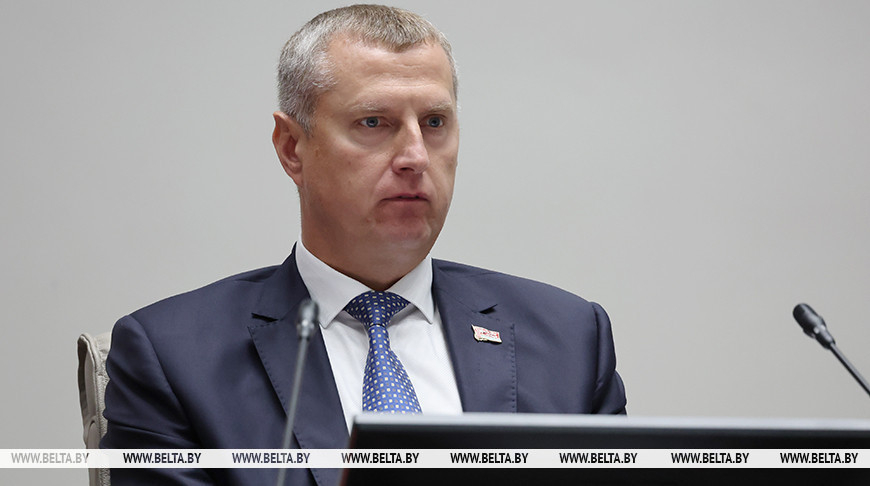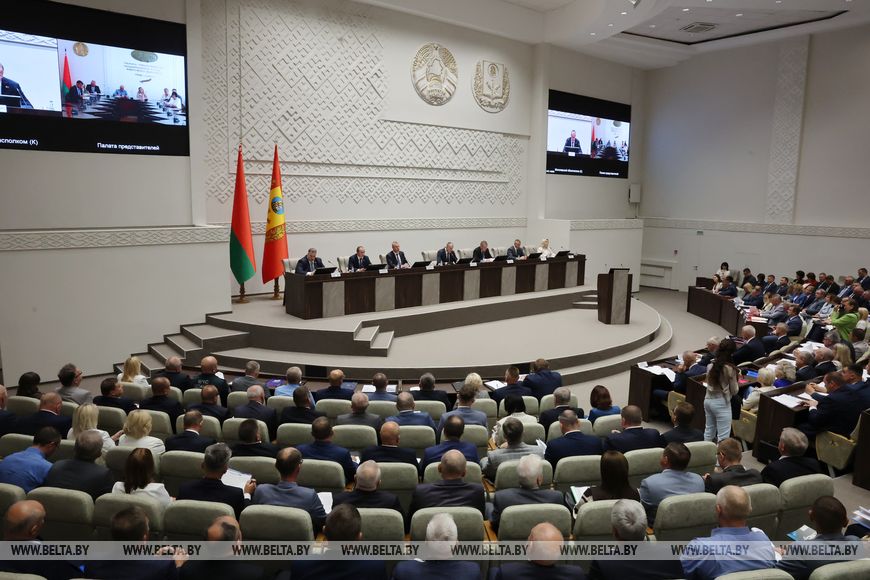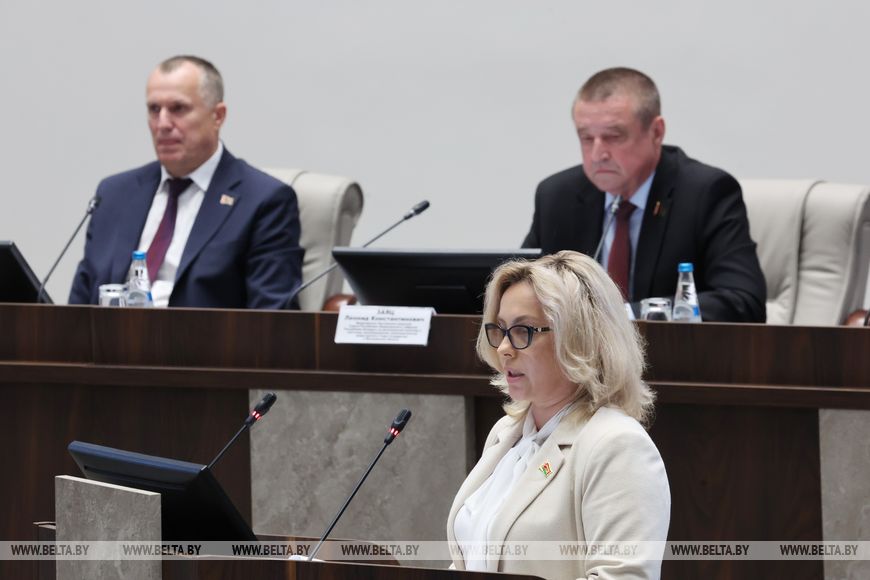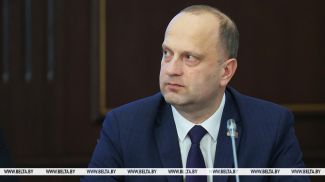
Dmitry Krutoi
MINSK, 15 August (BelTA) - Industrial performance holds the key to fulfilling all target and indicative indicators for the region as a whole, Head of the Belarus President Administration Dmitry Krutoi told the media following a meeting of the Mogilev Oblast Executive Committee, BelTA has learned.
The meeting reviewed the social and economic development results and budget execution for Mogilev Oblast in the first half of 2025, identifying potential growth areas for the regional economy.
“This was discussed extensively during today’s meeting. The primary focus, of course, is on industrial enterprises, as the shortfall in gross regional product (GRP) in the first half of the year is primarily linked to the industrial sector’s performance. These enterprises represent various industries. During the meeting, we specifically reviewed their export plans. Clearly, the current difficulties on the Russian market stem from high interest rates, some counterparties backing out of contracts agreed earlier this year, and delays in several joint investment projects. Therefore, we urgently need to pivot to other markets. The marketing teams of these enterprises are now prioritizing the search for new partners in CIS countries, Asia, and Africa,” Dmitry Krutoi said. “Seven months of economic performance have already passed, with all plans finalized. While the regional budget revenue is being fulfilled satisfactorily, with over 15 districts have exceeded their targets (this means additional funds are available for new initiatives), we should primarily allocate these resources to investments, as the president says," he emphasized. For the past three years, the region has led the nation in construction and installation works, procurement of new equipment, and production of import-substituting goods. This positive achievement was also highlighted today.”

Industrial performance is the key to achieving all target and indicative indicators for the region as a whole, the head of the Belarus President Administration said. “We cannot allow Mogilev Oblast to lose its competencies in petrochemicals, woodworking, pulp and paper production, or light industry. Yes, these sectors include private companies and municipally owned enterprises that have demonstrated better results and stronger growth dynamics in the first half of the year. However, we still want to ensure that the national level does not slow its growth pace either,” he stressed.
In his words, the government will hold extensive discussions with the president to assess the overall economic performance in the nine months of the year. “We hope Mogilev Oblast will approach these discussions with solid results,” the head of the Belarus President Administration said.
“Agriculture received less focus today, given the well-understood reasons for temporary slowdowns in crop production due to the two-week delay in harvest schedules. Currently, in mid-August, we can see these trends will stabilize by month's end. Overall, the region expects a grain harvest of about 1.4 million tonnes, including rapeseed and corn, with figures exceeding last year's results. Forage procurement currently shows a 10% year-on-year increase. The next challenge is to convert strong crop production into growth for the dairy-meat sector. We need to boost milk yields, improve livestock weight gains, and reduce animal mortality, though H1 results in these areas remain relatively stable,” Dmitry Krutoi said. “Construction is another topic of importance. Targets under the national investment program were fulfilled, though some regional projects lag behind. Each shortfall was examined in detail today, with all managers committing to resolve them within 3-4 months. Every budget ruble must be fully utilized. In these challenging budgetary conditions, we cannot tolerate unspent funds, especially investment. The Year of Improvement initiative carries major obligations to Mogilev residents, with numerous social facilities and infrastructure projects planned, fully budgeted, and awaiting implementation.”

The region is showing solid results in service exports. “Construction, transportation, and IT sectors working in this segment are performing well. There is a decline in exports to the Russian market, for reasons previously mentioned. In coming months, with Russia's slowing inflation and expected interest rate cuts by their Central Bank, we anticipate renewed activity in traditional consumer segments for our products. No one is withdrawing from the market, but certain segments are experiencing difficulties with financial mechanisms for export promotion in Russia,” the head of the Belarus President Administration said.













